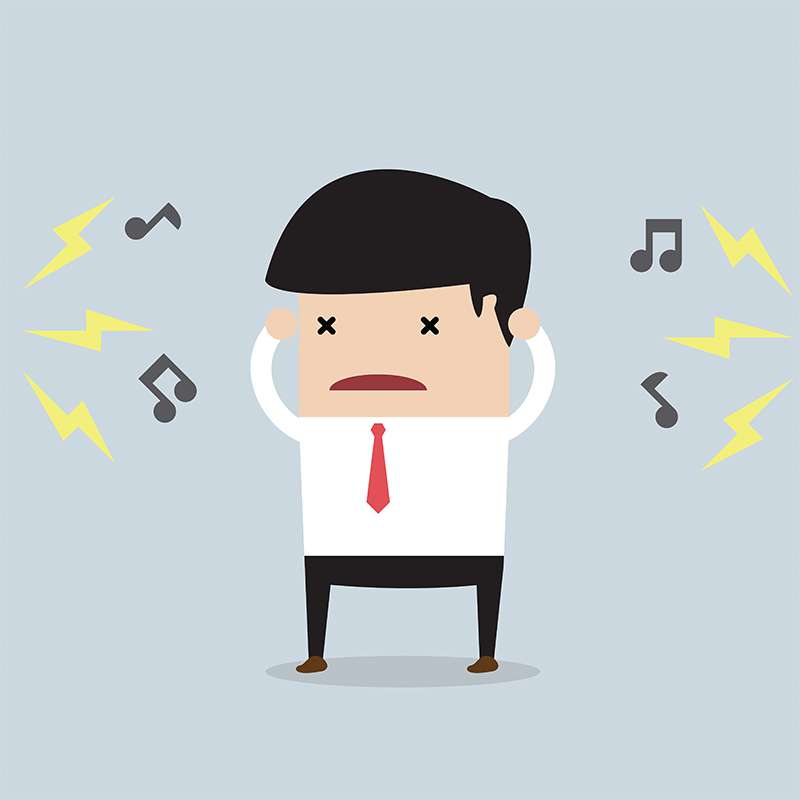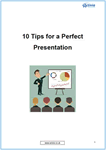Many years ago, while studying cross-cultural communication, we were taught things that I have remembered to this day. I have never forgotten the statistic that
7% of communication is verbal, and that 93% is non-verbal.
Noise Factors
Similarly, I have never forgotten that included in the section on barriers to communication was something called
noise factors. Noise factors were described as anything that distracts the person that you are communicating with. In some cases it hinders them understanding something you are saying, and in really extreme cases, can block all communication.
A very simple example is a man with his zip down. We all know how distracting that is, and I can assure you, if you have ever seen somebody do a presentation on a platform with his zip down, that is all that you will remember. I remember seeing a presentation in 2005, where the speaker, after walking out from behind the podium and standing on the front edge of the stage, realised that this was the case. He immediately started to falter, and walked back behind the podium and never came out from behind there again. To this day, I can remember his name, where he spoke, and even the year 2005, but I cannot remember what he said.
I was distracted by the noise factor.
What kind of noise factors are there?

1. Environmental noise factors.
There are many kinds of noise factors. Some are environmental, such as
real noise. Perhaps construction is happening nearby to where you are presenting. If it was something unexpected, and truly distracting, perhaps it is better to actually
reschedule the presentation, or move it, so that you can distance yourself from the noise.
Cape Town in South Africa enjoys many foreign film makers going there to film television adverts or films because of favourable exchange rates. One presentation I was in the audience for suddenly got disturbed by the filming of an action scene with helicopters overhead. The presenter had the good common sense to check that if everybody was OK with it, to reschedule it to the following week so that everybody could benefit properly.
2. Technical noise factors

Linked to environmental noise factors are technical ones. A
mobile going off while presenting, and even worse, when it is your own. But mostly this can be about the tools being used. Is there feedback through the PA system? Or have you made your PowerPoint presentation so fancy that people sit wondering how you can do what you just did? The PowerPoint slides are a tool to use, do not allow them to be the distraction. Or even worse, your technology malfunctions. Have you rigorously tested what you plan to use? Do you know how to use it properly?
3. Social noise factors
Some noise factors could be social, such as a culture clash. In the
previous article in the series we covered these in detail, but are you using words, gestures, clothing types, etc. that will distract your audience?
4. Distracting habits
Other noise factors could be things that you are doing. For a short while, I had developed the habit of standing twiddling my thumbs in front of me as I spoke, if I had no podium in front of me. Until a colleague pointed it out to me, I had not even realised how distracting it could be for an audience. I immediately worked on removing that habit.
Related to this are
"tics" that you can develop in your speech. Do you keep going "umm" before a sentence as you try to remember your next point? When I first did a public speaking course, we used to have to give 10 minutes presentations to the group and then get critiqued. One colleague said "You know" over 100 times in the space of a ten minute talk, and is all that people remembered.
When people pointed it out, he did not believe it and it was only when reviewing the video and counting the occasions he did it that he realised how bad it was. When focusing on your body language, remember that
the 93% of non-verbal communication must not negate the 7% that you are conveying through your words.
5. Wording
And those words of yours, they also can be a noise factor. Are you choosing and using
appropriate wording for your audience? Are you using wording that your audience might not understand? If you are in IT, your peers might all understand the terminology that you use, but if you are talking to others not in IT, are you using jargon that the audience does not understand?
My brother is a cardiologist. When he presents to his peers, he uses a totally different vocabulary to when he explains to me what he is currently working on. Are you using audience appropriate words, or do you leave your audience wondering, "What was that he said?" or whispering to their neighbour, "Did you get that?" This is probably
the single biggest noise factor of all, but the good thing is that you are totally in control of this one. Only you can influence what you say.
Again, it comes down to planning your presentation properly. Have you thought about who your audience is and what their understanding is likely to be before you put your content together?
In summary, one of the keys to ensuring that your audience does "receive" your message properly, is to
remove any possible noise factors. Are you doing everything you can to make sure that there is not an impediment to understanding? If you are and you have taken all of these things into account, you should be confident that your audience will receive and understand your message fully.
What do you think? Let us know what you think in the comments below.
 Download our Free eBook:
Download our Free eBook:
10 Tips for a Perfect Presentation 


























